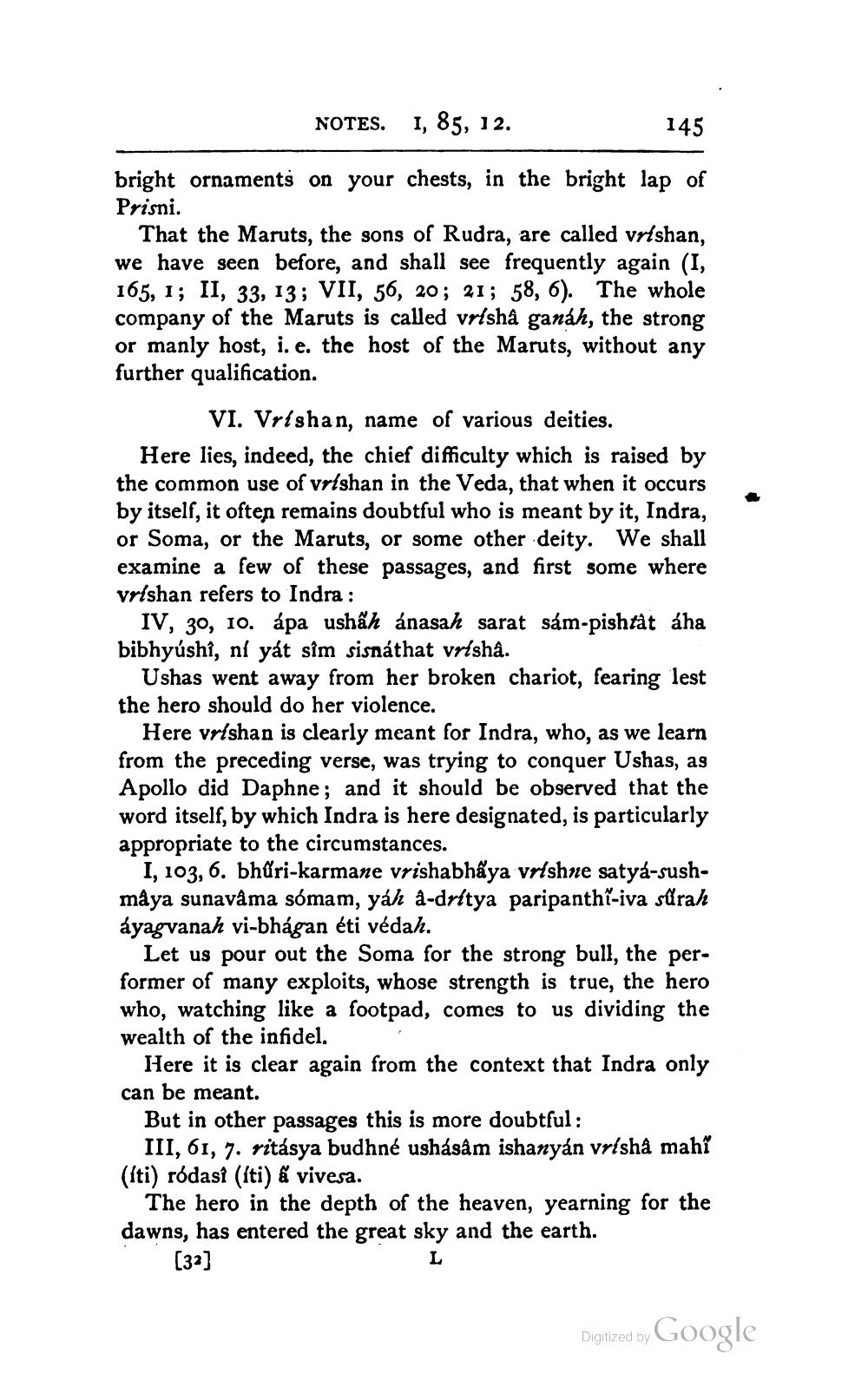________________
NOTES.
I, 85, 12.
145
bright ornaments on your chests, in the bright lap of Prisni.
That the Maruts, the sons of Rudra, are called vrlshan, we have seen before, and shall see frequently again (I, 165, 1; II, 33, 13; VII, 56, 20; 21; 58, 6). The whole company of the Maruts is called vrisha ganah, the strong or manly host, i. e. the host of the Maruts, without any further qualification.
VI. Vrlshan, name of various deities. Here lies, indeed, the chief difficulty which is raised by the common use of vrishan in the Veda, that when it occurs by itself, it often remains doubtful who is meant by it, Indra, or Soma, or the Maruts, or some other deity. We shall examine a few of these passages, and first some where vrlshan refers to Indra :
IV, 30, 10. ápa ushah anasah sarat sám-pishtat áha bibhyúshỉ, ni yát sim sisnáthat vrisha.
Ushas went away from her broken chariot, fearing lest the hero should do her violence.
Here vrishan is clearly meant for Indra, who, as we learn from the preceding verse, was trying to conquer Ushas, as Apollo did Daphne; and it should be observed that the word itself, by which Indra is here designated, is particularly appropriate to the circumstances.
I, 103, 6. bhứri-karmane vrishabhấya vrlshne satya-sushmaya sunavama sómam, yah a-drltya paripanthi-iva surah áyagvanah vi-bhágan éti védah.
Let us pour out the Soma for the strong bull, the performer of many exploits, whose strength is true, the hero who, watching like a footpad, comes to us dividing the wealth of the infidel.
Here it is clear again from the context that Indra only can be meant.
But in other passages this is more doubtful:
III, 61, 7. ritásya budhné ushásâm ishanyán vrlshå mahi (Iti) ródast (iti) á vivesa.
The hero in the depth of the heaven, yearning for the dawns, has entered the great sky and the earth.
[32]
L
Digitized by
Digitized by Google




